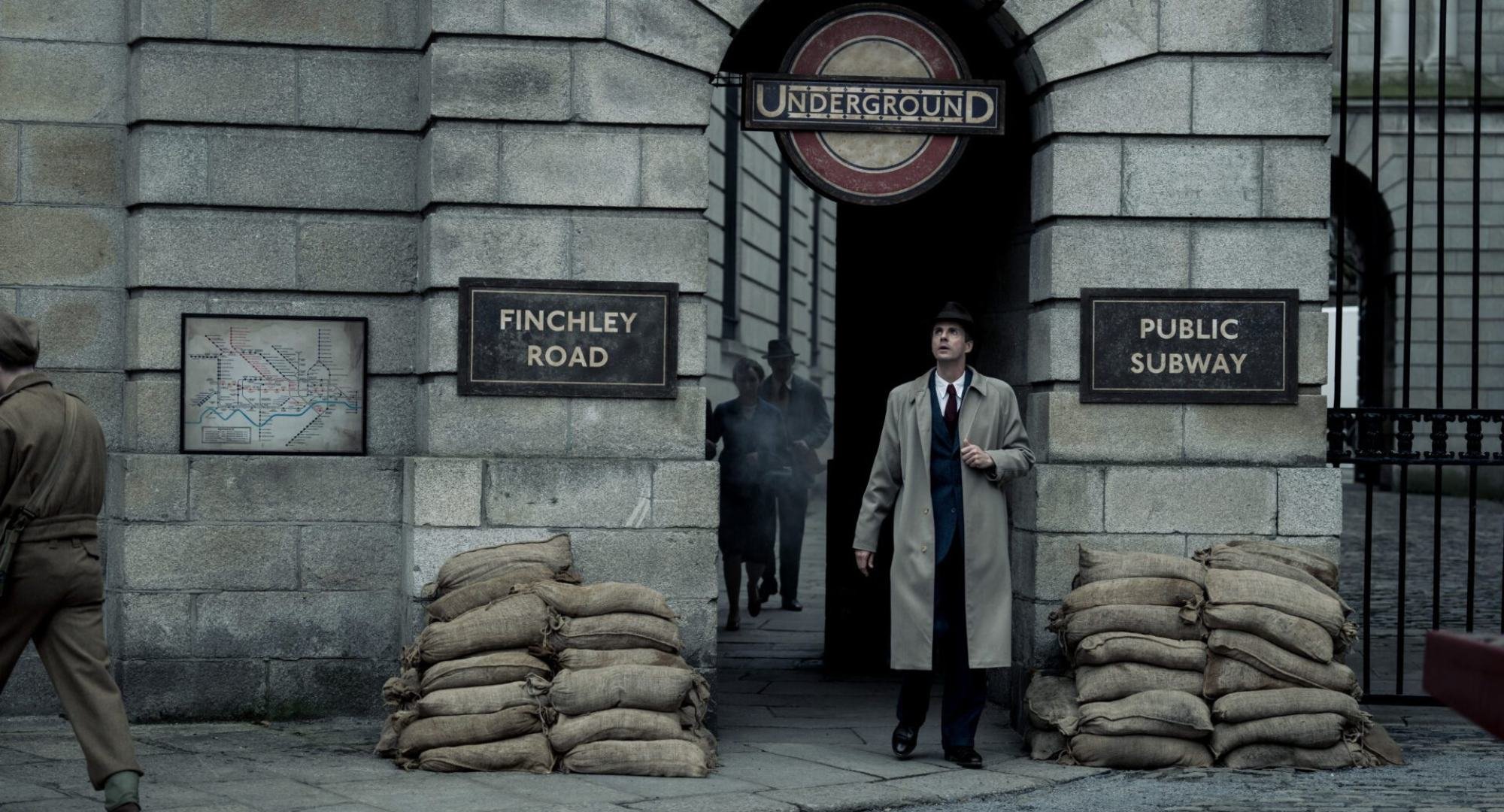Freud’s Last Session
The prospect of an Anthony Hopkins tête-à-tête is cause for excitement in anyone who’s seen a single Anthony Hopkins film, so when I heard he was playing Sigmund Freud debating the existence of God with Matthew Goode’s C.S. Lewis in the new film Freud’s Last Session, I had certain expectations. Biting jibes. Penetrating psychoanalysis. A sufficiently thorough exploration of why one man believes so determinedly in a divine creator and the other believes so determinedly in His absence. But being that the film - the second from director and screenwriter Matthew Brown - is an adaptation of a stage play by Mark St Germain, which is itself based on the book The Question of God by Armand Nicholi, it’s not entirely surprising that this imagined meeting between the founder of psychoanalysis and an Oxford don feels a little, to quote that Oxford don’s mate, “like butter scraped over too much bread.”
On the cusp of the Second World War Freud (Hopkins) and his daughter Anna (Liv Lisa Fries) fled an Austria infested with Nazis and now live in London, where daily sirens are the new normal and children are being sent off to the country for safety. Freud spends his days in the company of his dog Jofi, Anna and the ever worsening cancer in his mouth that he treats with morphine and day drinking. Looking for a verbal spar or perhaps some answers to his own mortality, he invites over a man whose worldview greatly contradicts his own – renowned ‘Christian apologist’ and author C.S. “Jack” Lewis (Goode). What begins as a slot between patients blows out to an entire day spent in Freud’s stately home and its surrounds as the two men discuss theology, PTSD and some topics outside either’s comfort zone.
While Freud and Lewis occasionally take to the streets of London the majority of their meeting takes place in Freud’s gorgeously appointed study, and in flashbacks to particular events that shaped their standpoints on the question of God. The film dips its toes ever so slightly into Lewis’ Oxford literary gang of J.R.R Tolkein and the other Inklings as the seed of his eventual Christian conversion, solidified by the trauma of the First World War and the death of his friend. We see glimpses of Freud’s life in Austria prior to his decision to leave, of his inability to acknowledge his daughter’s sexuality and of the suicide pill he keeps in a little tin in his pocket, just in case. Every now and then we escape the doom and gloom through fantasy sequences dreamed up by Lewis, no doubt forming the skeleton of the work he would most become known for, The Chronicles of Narnia.
Quotes of praise for Freud’s Last Session filled the screen prior to our media viewing, with one describing it as “a perfect storm for intellectuals, cinephiles, and theatre lovers alike.” While my take on this quote is likely not what its author intended, I have to agree about the film’s chaotic quality; this is a piece so wrapped up in the dazzlement of pitting two titans of 20th century thought against each other that it struggles to dive any further beneath the surface of their arguments. The central performances of Hopkins and Goode are indeed magnificent, even if Hopkins’ unmistakable Welsh accent is punctuated by a few too many overly Germanic Ja’s. Goode more than stands his ground against such a formidable theatrical force, providing much of the film’s emotional heft as a man haunted by a past without purpose. And the production design from the team at Ardmore Studios, who recreate Freud’s opulently dressed couch, do equally impressive work throughout the rest of his house.
The problem with Freud’s Last Session is that it doesn’t seem to have a whole lot to say in the first place, and the punches it should be making in the exchanges between Freud and Lewis seem to have been pulled. Having seen what Hopkins can do when the material is full of delicious little nuances (Silence of the Lambs is the obvious example but see also The Remains of the Day and the first season of Westworld) it’s frustrating that he isn’t given meatier stuff to chew on here. I expected a bit more bite from a talkie two-play, especially where something as contentious as religion is concerned. But I left the cinema with my appetite for God v Nothing banter somewhat unsated.
At the film’s conclusion comes some epilogue text admitting that, while it is said that Freud met with an Oxford don shortly before his death, it is unknown if it was C.S. Lewis. While such a finale would seem to fit well with the agnostic themes explored in the film, it did seem to make the whole affair seem speculative at best, and at worst, just a tad pointless.
Verdict:
☆☆☆
Freud’s Last Session is in cinemas April 18. And if you’re partial to tea and biscuits, head to one of Luna Cinemas’ Morning Tea sessions.



